
Exciting new series on “Voice, Body and Movement for Lawyers – How to connect with the jury and find Justice Through Dramatic Technique!”
Click here to find out more
You filed your litigation, journeyed through the process, and prevailed at trial. And the statute under which you filed your claim(s) and sought relief provides that you – as the “prevailing party” – are entitled to “reasonable” attorneys’ fees and costs. What does that all mean and what happens next? This ethics course, presented by Wyatt Partners (a corporation that focuses exclusively on the subject of legal fees), will be a procedural and substantive journey through the statutory fee-shifting process – what it is, why it exists, and how does it actually work from a process, content, and procedural standpoint.
The program will specifically focus on applicable Rules of Professional Conduct and case law, as well as the wide foray of experience our speakers have gained serving as fee experts across the United States and Europe as well as advisors to corporations and law firms with respect to statutory fee shifting. Both law firms and corporations will benefit greatly from such insights on a timely and evolving topic that affects everyone in today’s legal and business market.
Learning Objectives:
• Assessing the background, nature of, and reasons behind fee shifting, including what it means to be a prevailing party and certain examples of statutes that involve fee shifting, including the Bankruptcy Code, Copyright Act, Lanham Act, Patent Act, Longshore Harbor Workers’ Compensation Act, ERISA, CERCLA, and various civil rights and anti-discrimination statutes; Evaluating the Lodestar Method, the “Reasonableness” Requirement, Burdens of Proof, and other pertinent concepts that impact fee shifting
• Discussing Rules of Professional Conduct and legal criteria that must be considered in connection with statutory fee shifting – particularly in the context of reasonable fees and expenses (Including Rules 1.5 and Rules 1.2 and 1.4)
• Understanding the process, content, and timeline of statutory fee shifting, including the roles of judges, in-house counsel, and fee experts, as well as the preparation of a fee application under statutory fee shifting regulations
• Exploring the fee shifting process through certain real life case examples.

This Shakespeare?inspired program illustrates how Shakespearean technique can enrich courtroom advoc...
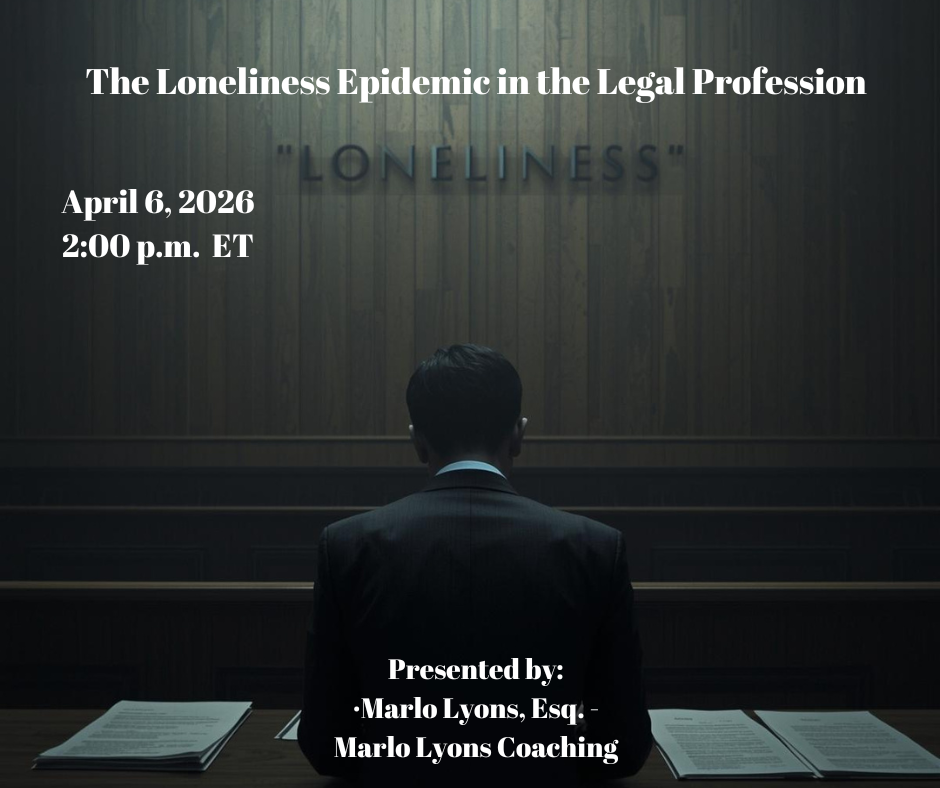
Loneliness isn’t just a personal issue; it’s a silent epidemic in the legal profession t...

United States patent law and the United States Patent and Trademark Office’s patent-related gu...
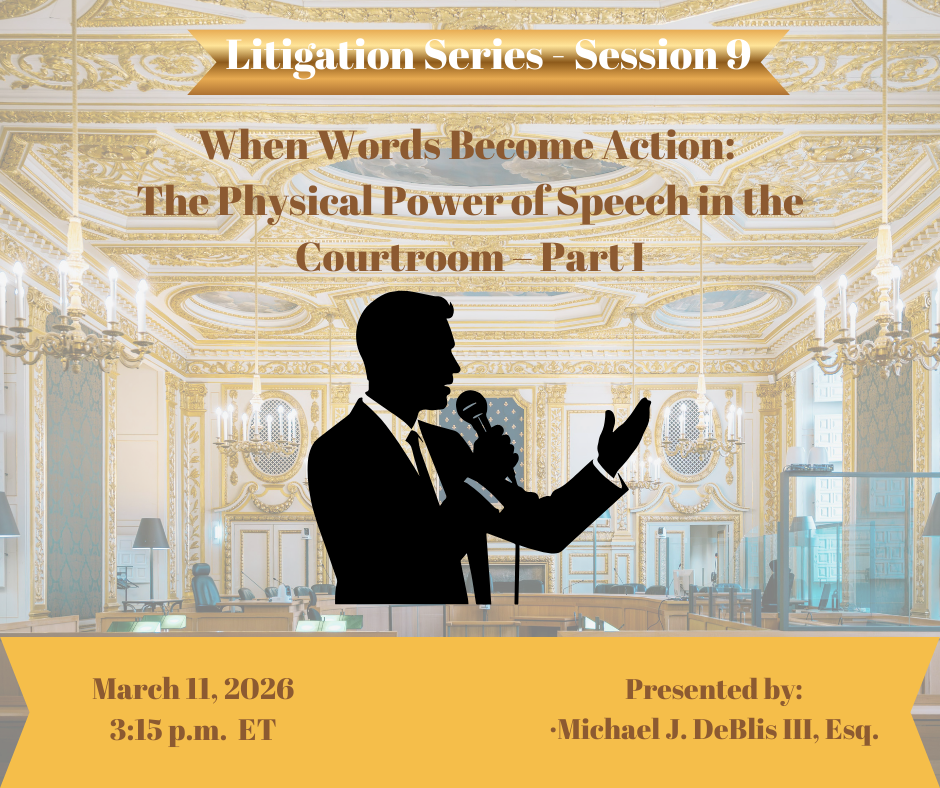
This program focuses on overcoming the inner critic—the perfectionist, self?doubting voice tha...
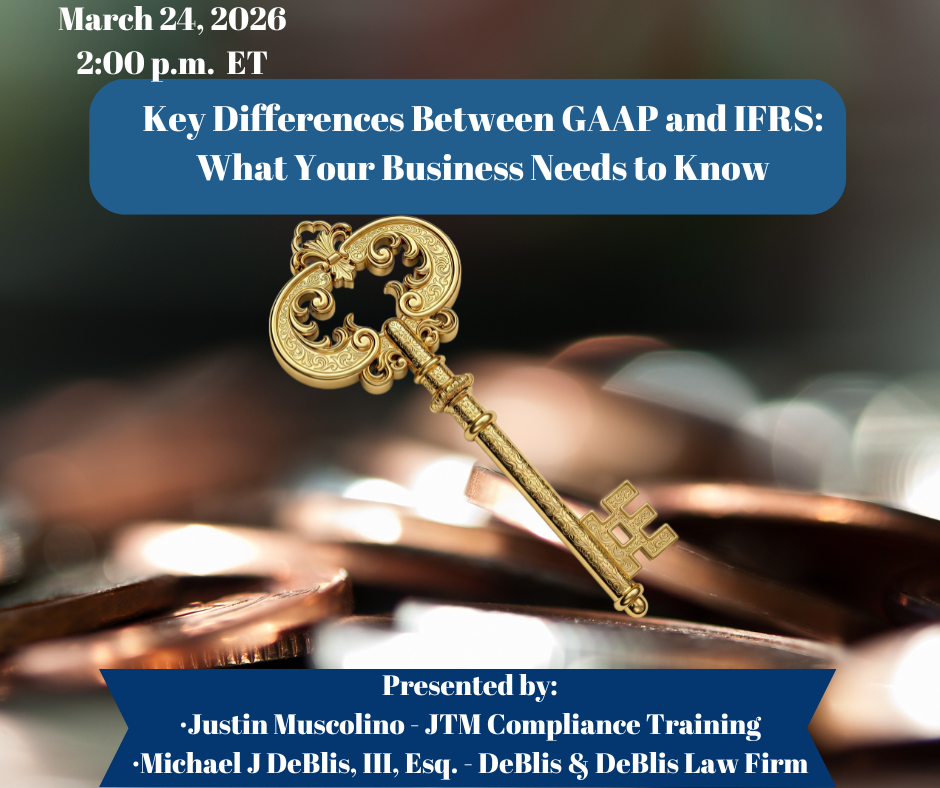
This session highlights the legal and compliance implications of divergences between GAAP and IFRS. ...
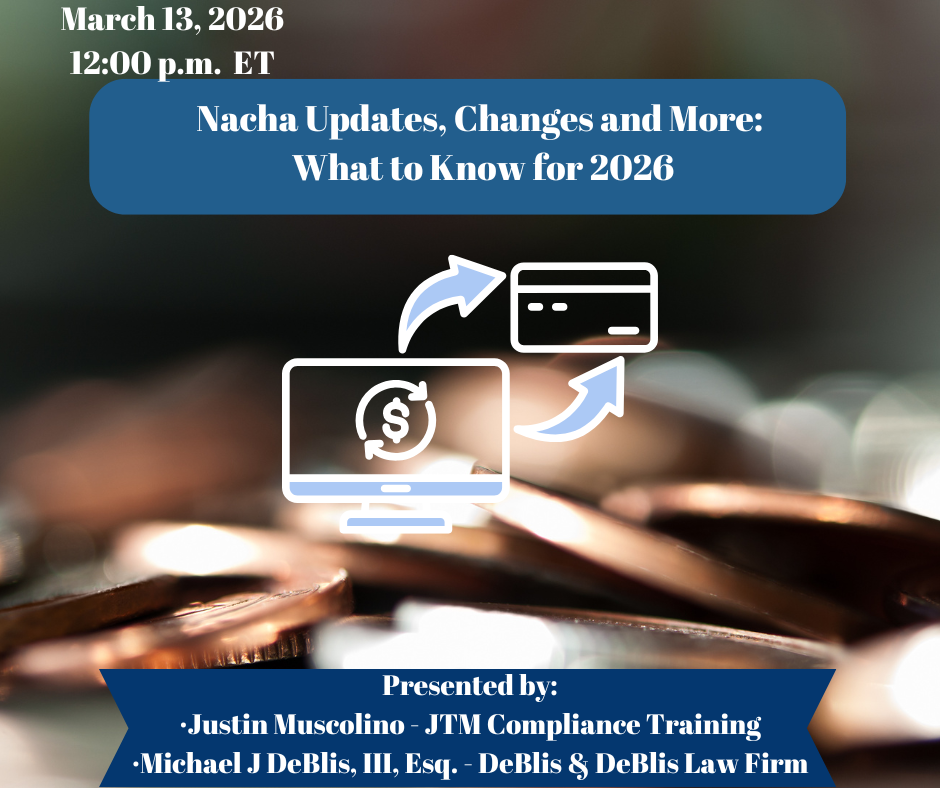
This attorney-focused program reviews upcoming Nacha rule changes for 2026 with emphasis on legal ob...
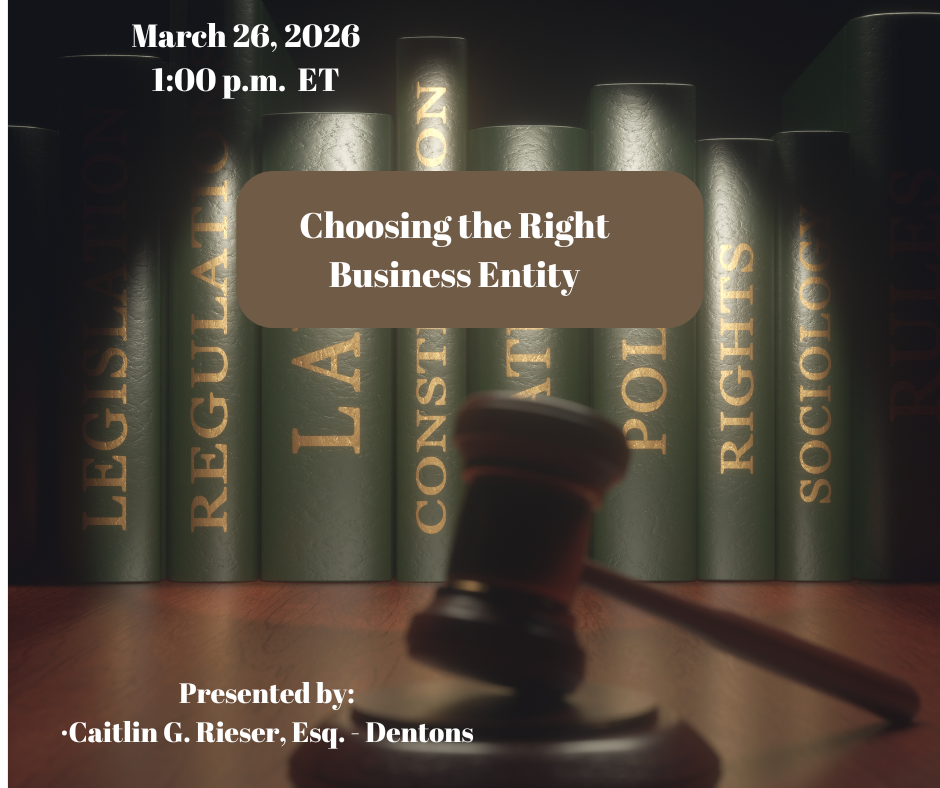
In “Choosing the Right Business Entity,” I will walk through the issues that matter most...
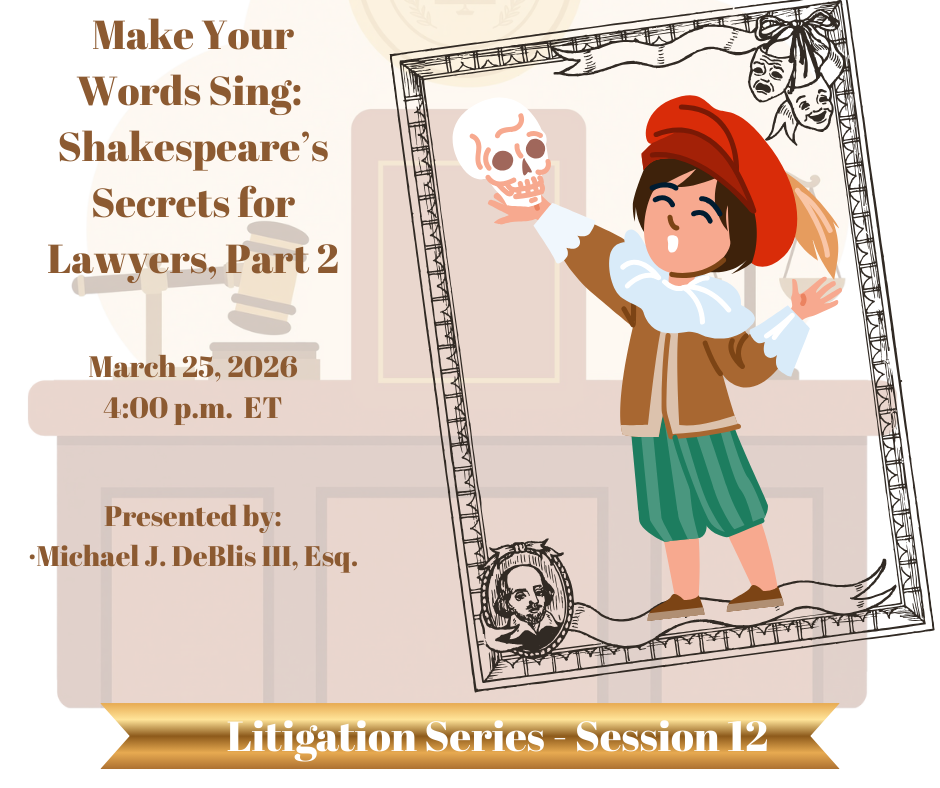
This companion program to Part 1 goes deeper into the rhetorical power of Shakespeare, emphasizing h...
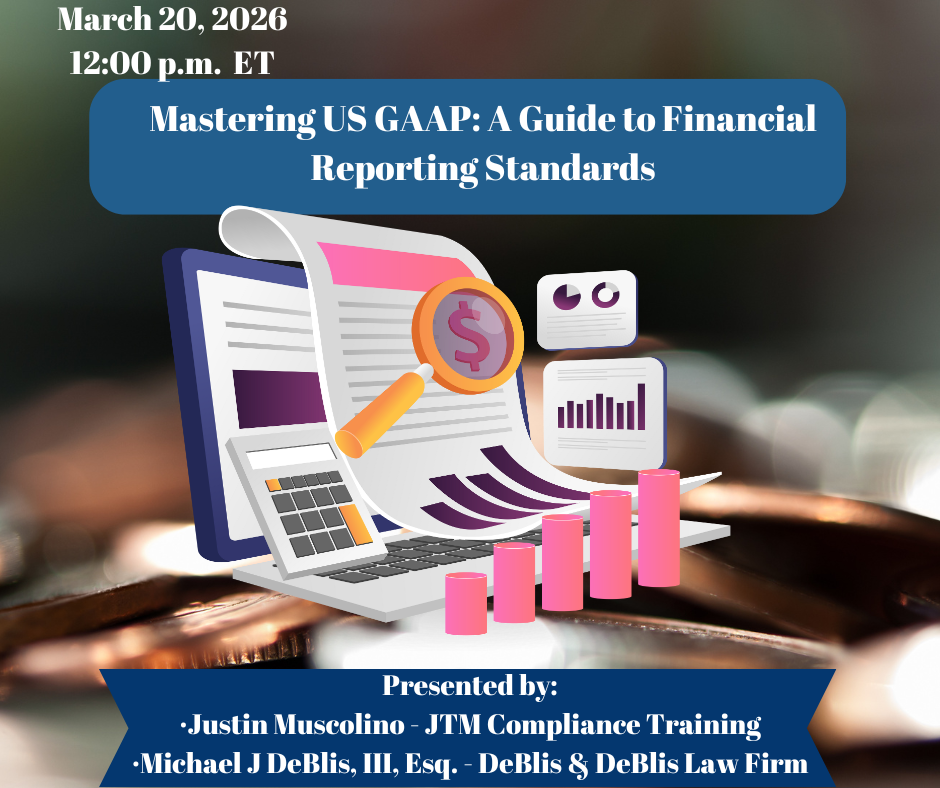
This advanced CLE dives into complex GAAP topics relevant to attorneys advising corporate, regulator...
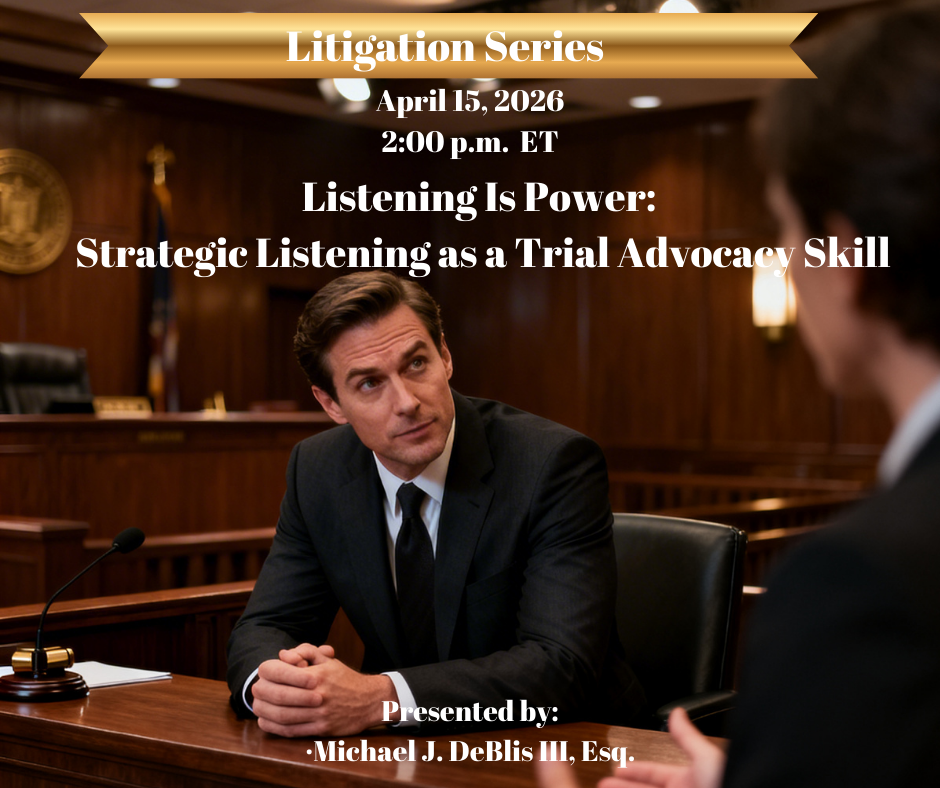
This program examines listening as an active, strategic trial advocacy skill rather than a passive c...